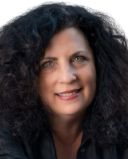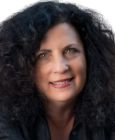Identity
Where Do I Belong? Identity, Belonging, and Possible Peace
Personal Perspective: Identity is interwoven with a sense of belonging—or not.
Posted June 9, 2024 Reviewed by Lybi Ma
Key points
- Race and religion shape notions of belonging and affect experiences of marginalization and invisibility.
- Being at once an outsider and an insider can give people a unique angle of vision from which to view society.
- Growing into a feeling of belonging to ourselves is a gift.
I’m not sure I’ve ever belonged anywhere.
I grew up as an only child mingling with older adults, taking my index finger and middle finger and placing them over the edge of a cocktail glass to be able to lift it at age 4 to join in the conversation with people who were schmoozing with my parents over dinner. I went out with my grandmother for lunch and asked what she thought of Lillian Hellman’s Pentimento, and she received quizzical and funny glances followed by fits of laughter as it became obvious that the question was emanating from a 4-year-old.

When playing with other children my age, that sense of belonging, that ease, was far less accessible. I wasn’t chosen first, or even second or third, for the squads in gym class. Every year, in anticipation of my birthday, my mom would ask me which friends I wanted to invite to a party. Rather than be excited about planning it, I was filled with nervous dread, aware my friends weren’t friends with each other, which reminded me that there was no single group to which I belonged.
And there was Shaker Heights, Ohio, the city in which I grew up, a seemingly beautiful, gilded community where I learned that belonging was fraught. My parents weren’t interested in joining a country club, but all around me, I discovered that many of my friends’ parents had. When I was little and my friend, Betsy, invited me to Oakwood Country Club to have lunch, guzzle Arnold Palmers, and go swimming, my parents explained to me this was an exclusively Jewish country club, and I didn’t really understand what that even meant—other country clubs didn’t allow Jews to join. I didn’t get that either.
On weekend nights, my parents and I would drive into downtown Cleveland for dinner or to catch a game or concert, and I remember that we’d pass a particular restaurant on the route, and it was extremely busy every time. I saw Black people spilling out into the street and I asked about eating there, figuring if it was that crowded it had to be good. My parents explained to me that it was a restaurant we couldn’t go to, that it was owned and operated by Black people for Black patrons.
Once in junior high and high school, I had many Black friends and my first boyfriend was Black. I remember in tenth grade being approached by a group of successful Black students asking me to join them in establishing a new student organization to help bridge the severely alarming racialized achievement gap. I didn’t yet have the language to describe what I was doing though I now understand I was trusted and relied on to be an ally. I was with this group, not of this group, inhabiting all at once insider and outsider status.
I had trepidation going far from home for college at the University of Wisconsin-Madison. Unsurprisingly, I had no interest in joining a sorority. Accepted as a transfer student at Cornell, I figured I’d need to join one given the extent of Greek life there. I wound up staying in Wisconsin, and friends suggested I give a sorority a chance. I did. For about five minutes. Mandated conformity seemed too high a price for belonging.
I moved to Texas for graduate school where I walked into the department decorated with Christmas ornaments and ribbons. I loved Christmas decorations but I couldn’t understand any place for them at a large public university. And the fact that there were too few of us in such a large department only reinforced my questions.
I transferred to Brandeis for my Ph.D. and while many undergraduate students there identify as Jewish, that’s not true of the graduate population. It was strange going from a place where I had to claim my identity to a place where Judaism was swirling all around me, yet I felt increasingly disconnected.
When I was in fifth grade, my parents joined a synagogue. I remember questioning why it was so expensive, as I couldn’t understand, and still don’t, why it would cost money to seek communal meaning and God. It’s no wonder I’ve questioned the presence and meaning of God.
My first husband was raised an Orthodox Jew. The Judaism that he belonged to and the Judaism that I belonged to were entirely different. I am more at home in religion with my husband, Mike, who was an altar boy.
Now I’m in South Carolina where the presumption of Christianity is writ large with friends up north asking me how I feel given the chaotic brokenness across the globe, and I tell them that I feel safer in large part because I don’t belong. It’s a blessing in disguise to pass, to be a little invisible. It’s in the erasure that I feel safer.
Since October 7, I have understanding of my grandmother’s adoration for Israel and the reasons why she and my grandfather often traveled there. She taught Hebrew, served on Jewish organizations, and every holiday cooked elaborate dinners that we spent with dear friends who had narrowly escaped the Holocaust. The man was a violinist for the Cleveland Orchestra and somehow made music after that, from that, and maybe because of that.
Growing up, I couldn’t understand why people just couldn’t get along and why different groups yearning for a homeland couldn’t have it. The truth is I still feel that way. I don’t belong with Jews who are rabidly pro-Palestine, nor do I belong with anyone who thinks that Palestinians shouldn’t also have a homeland.
Counseling abusive men for so many years and then later involved in caregiving for my adoring and abusive father helped me to understand how everything is blended. Things are often one and both at the same time. I, too, am one and both at the same time.
Finally, at 54, I’m learning how to belong to myself.
A version of this post also appears in Newsweek.




